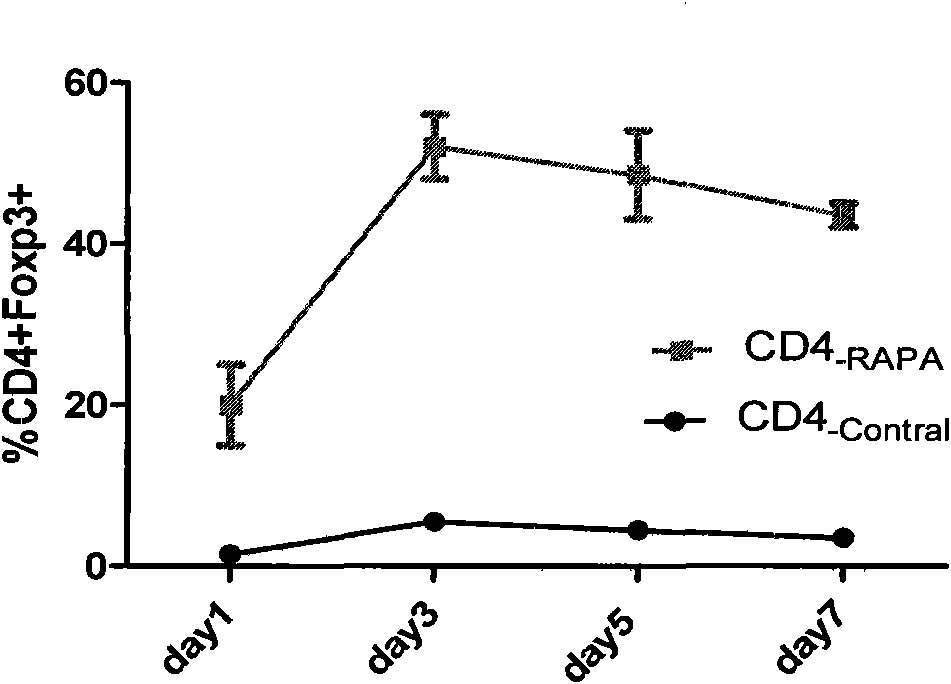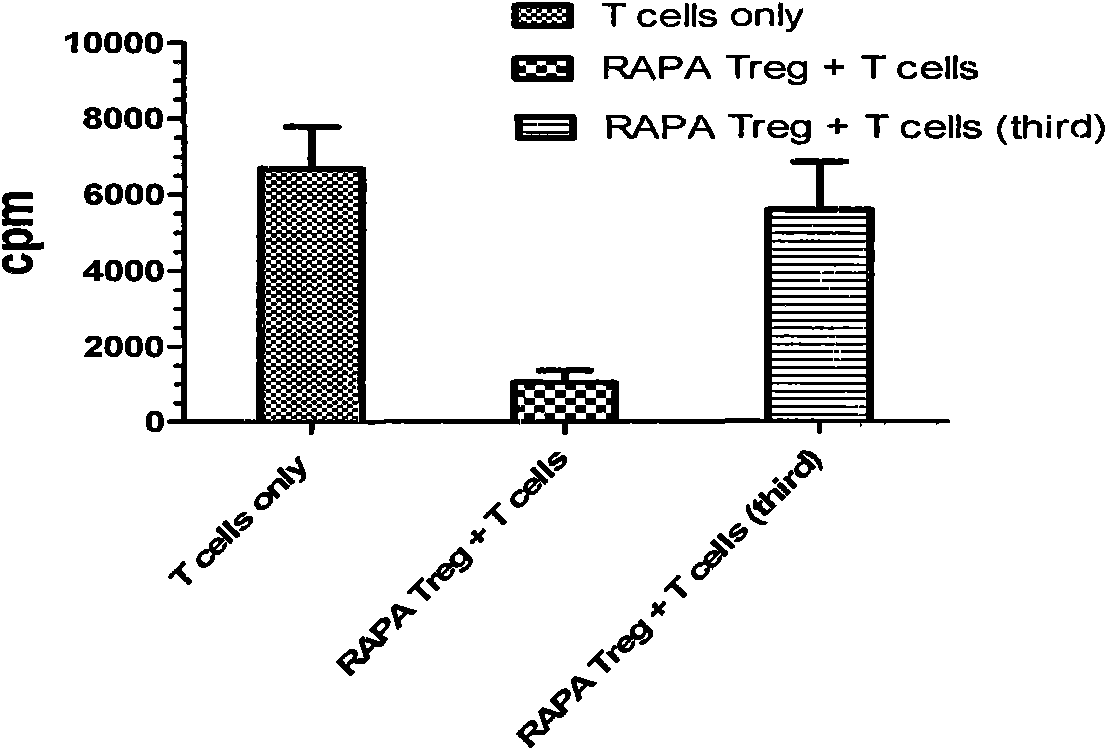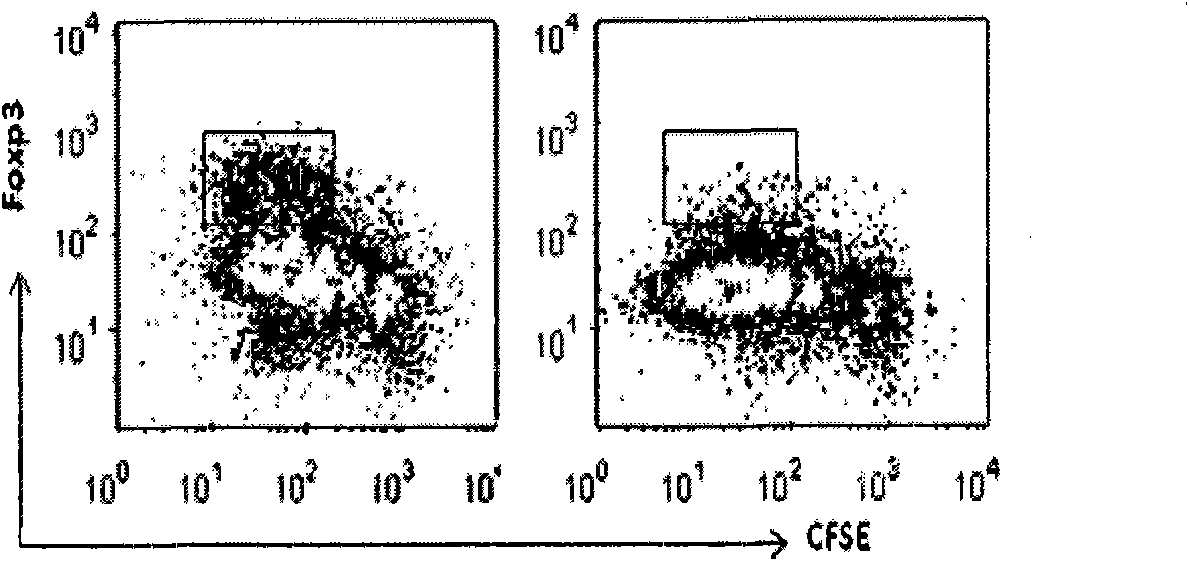In vitro amplification adjustable T cell method
An in vitro amplification and regulatory technology, applied in the field of biomedicine, can solve the problems of inability to achieve tolerance, prolong the survival of allografts, lack of immunosuppressive function, etc., and achieve the effect of sufficient quantity and great clinical application value
- Summary
- Abstract
- Description
- Claims
- Application Information
AI Technical Summary
Problems solved by technology
Method used
Image
Examples
Embodiment 1
[0030] Materials: CD4+ T cell isolation kit (purchased from Miltenyi Biotec, USA), anti-human CD3 (BD Com., USA) coated culture plate (purchased from VWR, USA), systemic immunodeficiency (SCID) mice (purchased from Jackson Laboratory, USA).
[0031] Instruments: magnetic bead separator (Auto MACS from Miltenyi, Germany), flow cytometer (BD company, model: Vantage SE).
[0032] Reagent: Inducer: anti-CD3CD28-beads (the ratio of cells to cells is 1:10, Invitrogen), rhIL-2 (final concentration after addition is 100IU / mL), rhTGF-β (final concentration after addition is 5ng / mL) Purchased from BD Company of the United States and Rapamycin (final concentration after adding was 10nM) was purchased from Wyeth Pharmaceuticals. Amplifier: rhIL-2 (20IU / mL), anti-humanCD28 (1ng / ml), Rapamycin (10nM, Wyeth Pharmaceuticals); culture medium was supplemented with 100U / ml penicillin in complete RPMI-1640 medium, 100μg / ml chain Mycin, 2mM L-glutamic acid, 10mM 4-hydroxyethylpiperazineethanes...
PUM
 Login to View More
Login to View More Abstract
Description
Claims
Application Information
 Login to View More
Login to View More - Generate Ideas
- Intellectual Property
- Life Sciences
- Materials
- Tech Scout
- Unparalleled Data Quality
- Higher Quality Content
- 60% Fewer Hallucinations
Browse by: Latest US Patents, China's latest patents, Technical Efficacy Thesaurus, Application Domain, Technology Topic, Popular Technical Reports.
© 2025 PatSnap. All rights reserved.Legal|Privacy policy|Modern Slavery Act Transparency Statement|Sitemap|About US| Contact US: help@patsnap.com



